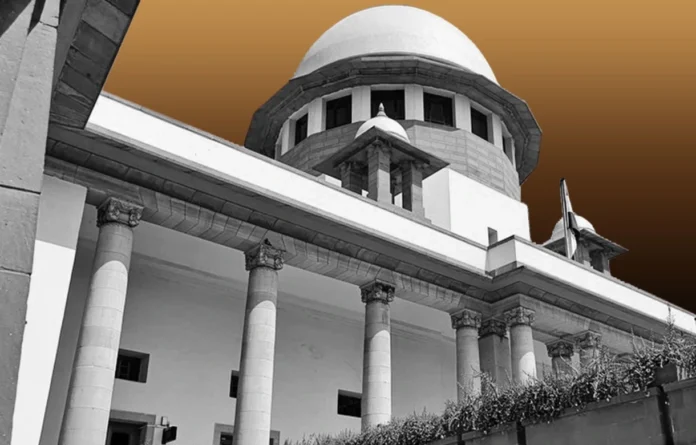Chief Justice of India Sanjiv Khanna has constituted a three-judge Bench of the Supreme Court to hear the Special Leave Petition (SLP) filed by AIMIM candidate and accused in the 2020 Delhi riots Tahir Hussain, seeking interim bail to campaign for the upcoming Delhi Assembly elections.
The Bench of Justice Vikram Nath, Justice Sanjay Karol and Justice Sandeep Mehta will hear Hussain’s interim bail plea on January 28.
On January 22, a two-judge Bench of Justice Pankaj Mithal and Justice Ahsanuddin Amanullah delivered a split verdict on the matter.
While Justice Mithal dismissed the petition, Justice Amanullah granted interim bail to Hussain.
Following the divergence, the Registry was directed to place the matter before the Chief Justice of India to either refer the matter to a third judge, or a larger bench.
On January 14, the Delhi High Court granted custody parole to the AIMIM leader to file nomination papers from the Mustafabad constituency on an AIMIM ticket. It, however, refused to grant him interim bail from January 14 to February 9 to fight the polls, saying that the gravity of allegations against Hussain, being the main perpetrator in the violence, resulting in the death of several persons, could not be overlooked.
The High Court further pointed out that about 11 FIRs were registered against Hussain in connection with the riots. It noted that the accused was in custody in a related money laundering case and another case registered under the Unlawful Activities (Prevention) Act.
Hussain challenged this order in the Apex Court.
In his order, Justice Mithal observed that the right to contest in elections was not a fundamental right. The right to contest the elections was further protected by the High Court’s order granting custody parole to file nominations.
He pointed out that allowing interim bail for the purpose of contesting elections could open a ‘Pandora’s box’ as every undertrial would take this ground.
Justice Mithal said since elections were held all year round, every undertrial would come with the plea that he wanted to participate in elections and therefore, be granted interim bail. This would open floodgates, which could not be permitted.
Once such a right was recognised, as a sequel, the petitioner would ask for the right to vote, circumscribed by Section 62 of the Representation of Peoples Act, he added.
Referring to the charge sheet filed by Delhi Police against Hussain, the judge pointed out that the rooftop of Hussain’s house/office was used as the epicentre for the offences.
Releasing Hussain on interim bail for canvassing would amount to allowing him to go for door-to-door canvassing and hold meetings in the locality where the crime took place and witnesses reside. There was high possibility of the accused meeting the witnesses, noted Justice Mithal.
He further observed that canvassing for 10-15 days would not suffice the purpose in as much as a constituency has to be nurtured for years, for contesting. If the petitioner had not nurtured the constituency for the past few years sitting in jail, there was no reason why he should be released.
While acknowledging the seriousness and gravity of the allegations, Justice Amanullah said that the same remained as only allegations at the present moment.
He granted interim bail to Hussain till February 4, 2024, subject to the conditions in Section 482 and 484 BNSS 2023.
Justice Amanullah passed the order on the grounds of the period undergone under custody (five years) and the fact that bail had been granted in other cases. The judge further took into account the fact that Hussain should not raise the issues in the FIRs during his campaigning. He was directed to surrender by the noon of February 4, 2024.


